- Home
-
Services

Services
Information about Council's regular services and programs.
Airport
Community Services
Environment
- Biodiversity
- Biosecurity and weed management
- Climate Change
- Coast and estuaries
- Environmental programs and partnerships
- Floodplain management
- Pollution incident management
Footpaths and Cycleways
Rates and Charges
Report it
- Abandoned Vehicles and Trailers
- Fish waste recycling bin
- Illegal dumping
- Lost, damaged or stolen bin
- Make a suggestion
- Overflowing Public Litter Bins
- Overgrown land or properties
- Public Liability incident report
- Report an issue
- Streetlight faults
Roads and Parking
Vegetation Management
-
Community
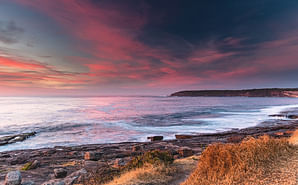
Community
Information about Council's community initiatives and support.
Animals and Pets
- Barking dogs
- Breeders Responsibilities - Dogs & Cats
- Dog walking areas
- Keeping animals
- Ranger Services
- Report a missing pet
Arts and Culture
- South East Centre for Contemporary Art (SECCA)
- Filming and photography in the shire
- Arts and Culture plan
Bushfire Planning and Recovery
- Coolagolite Bushfire Recovery
- Bushfire Risk Management
- Community Recovery and Rebuilding
- Plan and Prepare
- Emergency Planning - People Living with Disability
Citizenship
Community Support
Events
Grants and Funding
- Council Community Grants
- Funding finder
- Letters of support
- Grant - Expression of Interest
- Community grants program variation request
- Community grants program final report
Have your say
- Community Engagement Strategy
- Documents on exhibition
- Development proposals on exhibition
- Lodge a petition with Council
Health and Safety
-
Business
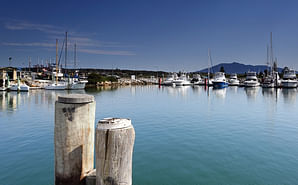
Business
Information about doing business and investing in the shire.
-
Development

Development
Information about Building and Development in the Bega Valley Shire.
Building and Certification
- About inspections
- Book an inspection
- Building and Certification
- Building Code of Australia
- Building steps check list
- Bushfire provisions and safety
- Construction site management
- Fire safety certification
- Insurance information
- Owner builder information
- Principal Certifying Authority
- Safety when renovating
Bushfire Resilient Housing Toolkit
Certificates
Development Applications (DAs)
- Delays to DA assessment times
- Types of DAs
- The DA process - Your guide
- Planning Portal
- Applications on exhibition
- Approved applications
- Make a submission on a DA
- Track an application
Do I need approval?
-
Council
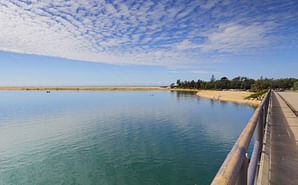
Council
Information about how Council operates.
About Council
- Contact us
- Customer service charter
- Payments online
- Policies, procedures and delegations
- Our organisation
- Programs and partnerships
Accessing Council Information
Careers at Council
Committees and Groups
Council meetings
- About Council meetings
- Disclosures of interest
- Meeting agendas and minutes
- Public forums and presentations
- Watch a Council meeting
Councillors and Mayor
Fees and Charges
Forms A-Z
News and Media
OUR PLACE
Live, work and play in the Bega Valley Shire
The Bega Valley Shire is an inclusive and welcoming community that integrates quality of life, prosperity, sustainable development, and conservation of the environment.
News and Notices
Browse current Council news and notices, or provide us with feedback on current projects via 'Have your say'.
-

Council proposes new approach to boost affordable housing
In continued efforts to address housing affordability, Bega Valley Shire Council is proposing a new policy to help fund affordable home investment through the rezoning of land for residential development....
Apr 3, 2025
-

Skate and music event in Eden to celebrate Youth Week
Bega Valley Shire Council invites young people aged between 12 and 24 years to celebrate NSW Youth Week at the Rhythm & Ramp event to be held from 3.30pm to 6.30pm at the Barclay Street Oval, Eden...
Apr 2, 2025
-

Put our communities first this federal election
Bega Valley Shire Council has called for all parties and candidates in this year’s federal election to put our communities first and commit to increased funding for Australia’s 537 local governments....
Apr 2, 2025
-

New Pambula Sporting Complex multi-use pavilion opened
Bega Valley Shire Mayor, Russell Fitzpatrick and Member for Bega, Dr Michael Holland, welcomed the community to an open day on Saturday 15 March to celebrate the new Pambula Sporting Complex multi-use...
Mar 27, 2025
-

Outdoor swimming pool season ends Sunday 30 March
As the end of March approaches, so does the end of another outdoor pool season in the Bega Valley.
Mar 26, 2025
-

Join the Community Book Selection Day at Bega Library
Bega Valley Shire Council invites the community to participate in a book selection day at Bega Library on Saturday 5 April from 10am to 12pm.
Mar 26, 2025
-
Bridge replacement works scheduled for Murrabrine Lane Bridge
Bega Valley Shire Council advises works to replace Murrabrine Lane Bridge in Cobargo with a new single-lane concrete bridge will commence from Thursday 3 April, weather permitting. The project is...
Apr 2, 2025
-
Proposed licence of Council managed community land - Tathra
Notice is given of intention to issue a licence for occupation of Part Lot 273 DP 821413 (R79310) at Tathra being the Green Shed Building for a period of 5 years.
Apr 2, 2025
-
Replacement works to commence for Dignams Creek Bridge
Bega Valley Shire Council advises that works to replace Dignams Creek Bridge with a new single-lane concrete bridge will commence on Monday 31 March, with a pedestrian footbridge and parking areas...
Mar 27, 2025
-
Restoration works scheduled for Old Wallagoot Road
Bega Valley Shire Council advises flood restoration works will be carried out on Old Wallagoot Road, between Sapphire Coast Drive and Tathra Road, from Monday 7 April to Friday 6 June, weather permitting....
Mar 26, 2025
-
Works scheduled for parking lanes on Quondola Street
Bega Valley Shire Council advises kerb and gutter repair works will be carried out on Quondola Street parking lanes in Pambula, from Monday 24 March to Friday 11 April, weather permitting.
Mar 20, 2025
-
Geotechnical investigations scheduled for Rixons Bridge design
Bega Valley Shire Council advises geotechnical investigation works will be carried out at Rixons Bridge, on Wallagoot Lane, from Wednesday 26 March, weather permitting.
Mar 19, 2025
-

Draft Affordable Housing Contribution Policy
Council is seeking feedback to the Draft Affordable Housing Contribution Policy.
Apr 3, 2025
-

Draft delegations policy
Council resolved to place its draft policy 6.28 delegations on public exhibition for a period of 28-days.
Mar 24, 2025
-

CWF Consultative Committee positions
Council is seeking expressions of interest from residents of the Wolumla area who wish to volunteer on the Central Waste Facility Consultative Committee.
Apr 3, 2025
-

Have Your Say - Cuttagee Bridge renewal
Cuttagee Bridge is nearing the end of its functional life and planning is underway to determine its future design and configuration.
Mar 18, 2025
-
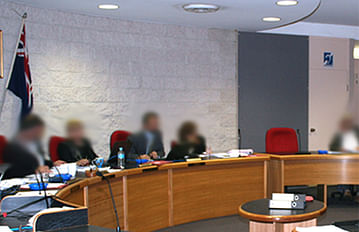
Council Meetings Bega Valley Shire Council
Council meeting information, schedules, agendas and minutes.
Feb 17, 2022
-

Make a Suggestion
Help us make it better, suggest something.
Mar 7, 2022
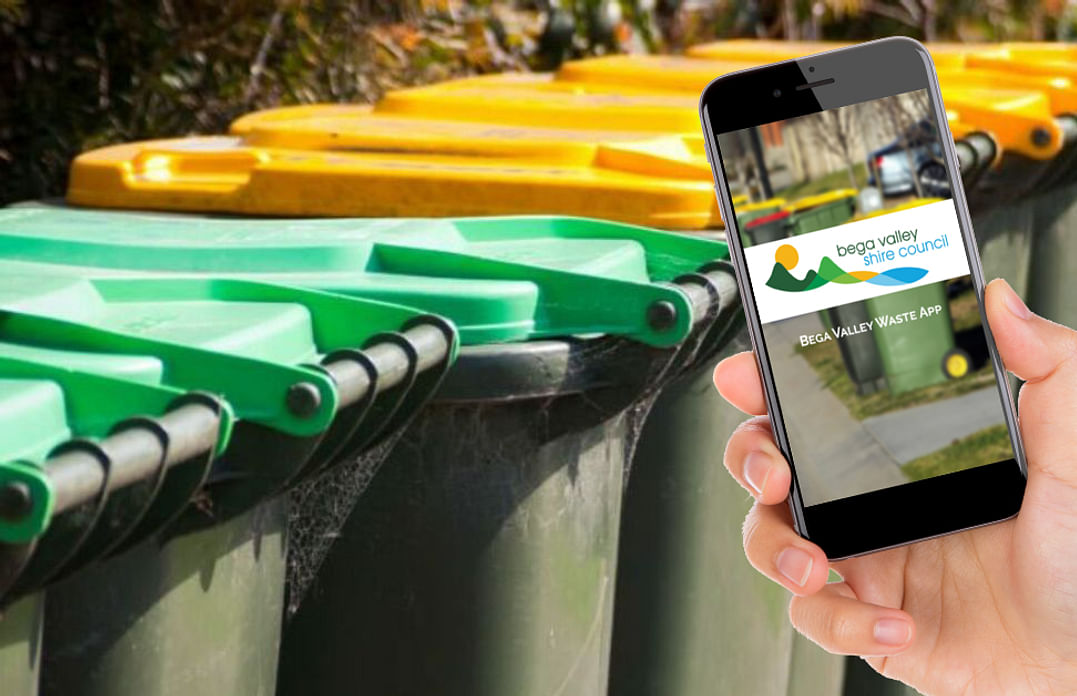
When do I put my bin out?
Council's free Waste App helps you stay up to date with bin collection days and learn how to recycle more effectively.
Don't have the Waste app? Find it by searching for Bega Valley Waste in your App store or head to the website.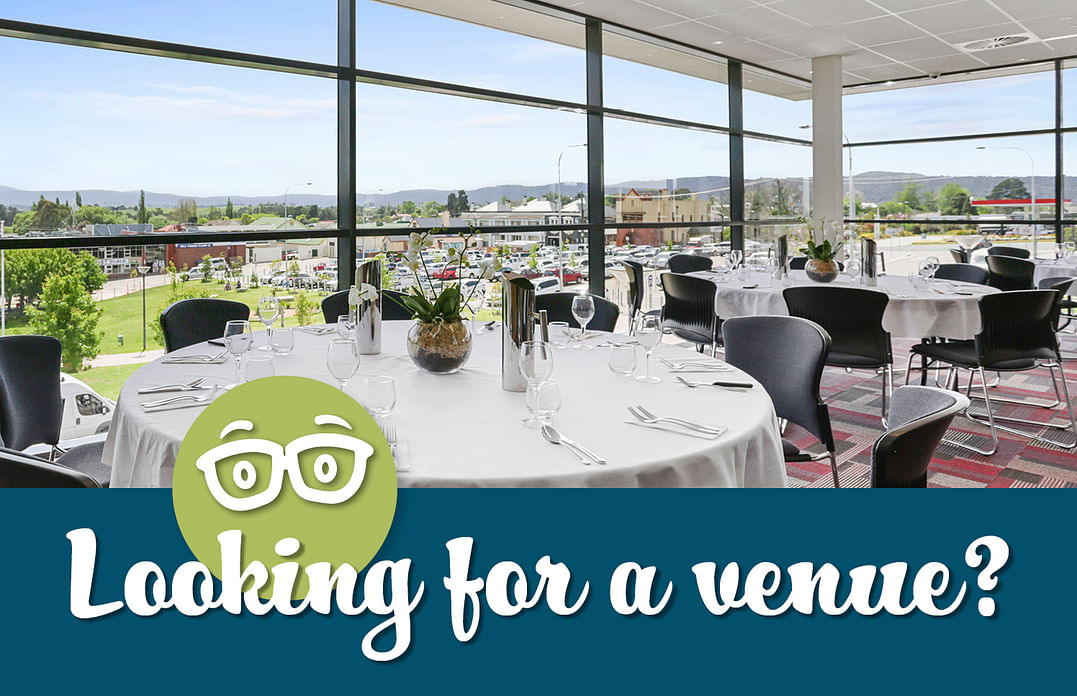
Need a venue?
The Bega Valley Commemorative Civic Centre has a range of room hire options to suit your needs.
Find out more
Our Libraries have more than just books!
Check out what the library has on offer.
Bega, Bermagui, Eden and Tura Marrang.

Funding notification
Don't miss out on funding, register your expression of interest and be notified when a grant becomes available.
Register your detailsOur council websites
Contact Us
- 02 6499 2222
- council@begavalley.nsw.gov.au
-
Zingel Place
PO Box 492
Bega NSW 2550 -
Monday to Friday 9.00AM to 4.30PM
Administration building Zingel Place Bega
Australia -
ABN: 26 987 935 332

